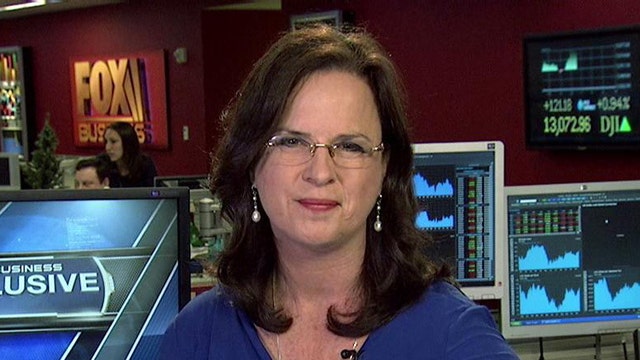Holiday Jeer: Big Banks Planning More Layoffs
The big Wall Street firms are preparing to dole out a not-so-nice holiday gift to their employees: More layoffs.
Citigroup’s (NYSE:C) decision to slash 11,000 jobs today comes as a number of big banks are planning further cuts to the workforce in the coming months, the FOX Business Network has learned. People inside Morgan Stanley (NYSE:MS) and Goldman Sachs (NYSE:GS) say management at those banks is contemplating cutbacks, as well, something that officials there won’t deny.
Analysts say Citigroup’s cut were unusually large, around 4% of its entire workforce, reflecting the fact that Citigroup had waited too long to reduce headcount given mounting profit and regulatory pressures on all the big banks. Still, even firms that have already announced major layoffs like Goldman Sachs and Morgan Stanley are expected to announce job reductions in the coming weeks and months, according to people close to both firms.
Citigroup’s cutbacks seem particularly onerous also because they are coming just before bonus season and just before the holiday season. Some of the people who were alerted in recent days that they no longer have jobs told the FOX Business Network that Citi timed the cuts so they didn’t have to make the payments.
Wall Street executives generally receive the bulk of their compensation in year-end bonuses, and Citigroup is said to have a rule that allows the firm to avoid making any payment if the employee is ousted before the bonus is handed out. Bonus payments are usually doled out at year’s end or early the following year.
Citigroup didn’t specify how many cuts will occur before bonuses were handed out. The move, the first major strategic decision by Citi’s new chief executive, Mike Corbat, could save $900 million in 2013. The bank will have to take a pre-tax charge of $1.1 billion this quarter.
People at Citigroup, who spoke on the condition of anonymity, say the cutbacks have begun and word is that they will continue through the end of the year so the firm can avoid the bonus payments. “Some people got fired yesterday,” said one person at the firm. “It’s a pretty crummy Christmas present; you would think they would give out at least a portion of the bonus, but they say they’re not.”
The bonus cuts apparently don’t extend to Citi’s recently departed senior executives. Corbat replaced former CEO Vikram Pandit, who was ousted by the Citigroup board in October; according to regulatory filings Pandit received a $6.7 million bonus after leaving the firm. Also leaving the firm was Pandit’s chief operating officer, John Havens, who received a $6.8 million bonus, according to filings.
While employees groused over the cutbacks, investors cheered. Shares of Citigroup spiked more $2 on the announcement.
A Citigroup spokesman would not deny that the firm is avoiding bonus payments for those involved in the cutbacks. A spokesman for Goldman wouldn’t comment on possible cutbacks at the firm, while Jeanmarie McFadden, a spokeswoman for Morgan Stanley, said the firm is “consistently evaluating the environment to ensure we are right sized.”
Wall Street firms and banks are profitable, though less so given declining trading volume and mounting costs to comply with new U.S. and global regulations following the 2008 financial crisis. With that, the big banks have been paring headcount for at least the past year; the New York State Comptroller’s office latest tally of securities industry employment shows there are 168,700 people working on Wall Street, but that’s 4,800 fewer than earlier in the year.
“You’re seeing continued layoffs because the capital-markets business is under stress,” said Dick Bove, a banking analyst at Rochdale Securities.
Bove said that while the fixed-income side of capital markets has avoided severe layoffs, “the equity side is getting hit pretty hard.”
Another potential jolt for the banks could come if a budget deal isn’t reached between President Obama and Congressional Republicans and the so-called fiscal cliff scenario of massive budget cuts and automatic tax increases go into the effect.
Such an event could roil the stock market as investor place their money in low-risk securities such as Treasury bonds or money-market funds, thus further weakening brokerage profits.




















